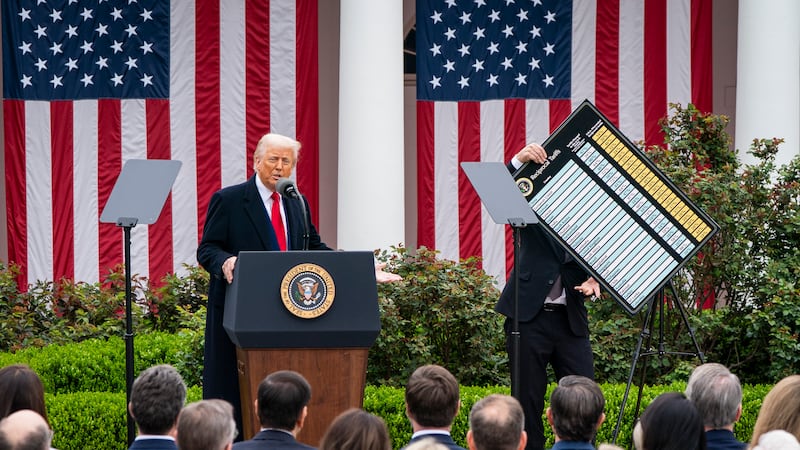The Government has licensed a "free-for-all" hike in commercial rates for 2003, business interests claimed yesterday, writes Tim O'Brien
Criticising the decision of the Government to effectively decrease the amount of money it allocates to local authorities, the Chambers of Commerce of Ireland said it feared its members would be asked to make up the shortfall.
The chambers - the State's largest business organisation, representing more than 11,000 businesses - also said it was greatly concerned at the decision to lift the cap on how much local authorities can levy the business community through commercial rates.
The moves had, in effect, created a double blow in that local authorities that find themselves with a deficit "will be tempted to significantly increase their take from commercial rates", said the chambers.
It warned, however, that following large-scale increases in insurance, many small businesses would find an increase in rates "the final straw".
Since the abolition of domestic rates in 1978 and a successful Supreme Court challenge to the payment of rates on agricultural land in 1984, business is the only sector that now pays rates on its property to local authorities.
According to the chambers, the total amount collected in rates when businesses first became the sole contributor in 1984 was just €182 million; this year businesses will contribute over €746 million in rates.
"We are concerned about the situation in which we now find ourselves, which is essentially a free for all," said Mr John Dunne, chief executive of the Chambers of Commerce of Ireland.
"Although we have regarded the cap, which has been in place since 1998, to be somewhat imperfect in the past, its total removal rather than reform is actually a step backwards."
He maintained the Government's recent decision not to increase the local government fund in the Estimates at a time of almost 5 per cent inflation, "actually represents a decrease in local authority funding for 2003".
Mr Dunne said that , while business was willing to pay its share, it could not afford to "be treated as a soft target for local authority funding deficits because those local authorities have been starved of funding by the central Exchequer".
"Commercial rates are a business cost that the Government can control. The fact that it seems unwilling to do so is a huge blow for Irish business and our national competitiveness."
When the chambers launched its rates campaign last September, it warned the Minister for Finance, Mr McCreevy, against cutting local government budgets, while at the same time allowing local authorities to increase substantially commercial rates to make up for the shortfall in funding.
"On average, business, through commercial rates, pays for almost €1 in every €4 spent by local authorities and, in the case of some local authorities, business pays as much as €3 out of every €4 spent.
"In addition, business has to pay twice over as it also pays for water, disposal of commercial waste and other levies and charges separately," he maintained.
"Business is willing to pay its fair share but ... there is a limit to the amount that any one sector of society should be expected to contribute."















